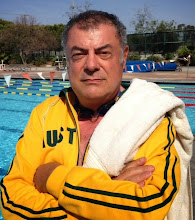 The heady years of the late seventies rush back to many of us, especially those with ties to San Francisco - remembering those rallies, marches and vigils in the Castro, and electrifying reality of gay pride, and the sense that the world really could be changed with just a few dedicated people standing up for what is right.
The heady years of the late seventies rush back to many of us, especially those with ties to San Francisco - remembering those rallies, marches and vigils in the Castro, and electrifying reality of gay pride, and the sense that the world really could be changed with just a few dedicated people standing up for what is right.But Penn is also embroiled in a controversy for his support of dictators like Hugo Chavez in Venezuela and Fidel Castro in Cuba. As outlined by Patrick Goldstein in a recent edition of the LA Times, Penn comes off somewhat hypocritical in his support for a number of regimes which have never treated LGBT people very fairly. This has to pose something of a conflict for the politically savvy Penn, who has never made his liberal, anti-Bush policies a secret. One wonders how he will resolve, either publicly or privately, the apparent contradiction of his loving, even reverent portrayal of one of Gay America's icons, and his support for those dictators.
Nonetheless, Gus Van Sant's treatment of the material was moving, even if the device of having Milk dictate his tale into a tape recorder, ostensibly prior to being assassinated, seemed strained, and some of the TV footage had the ring of "see, this really did happen, here it is on TV" - even if the actual news footage was produced just for this film. You have to assume there is supposed to be a sense that this was the way it was if we show it as a TV sequence. These quibbles detract nothing from the solid performances and the utterly affecting material.
Van Sant dips his Penn in Milk writes in magic ink.

No comments:
Post a Comment